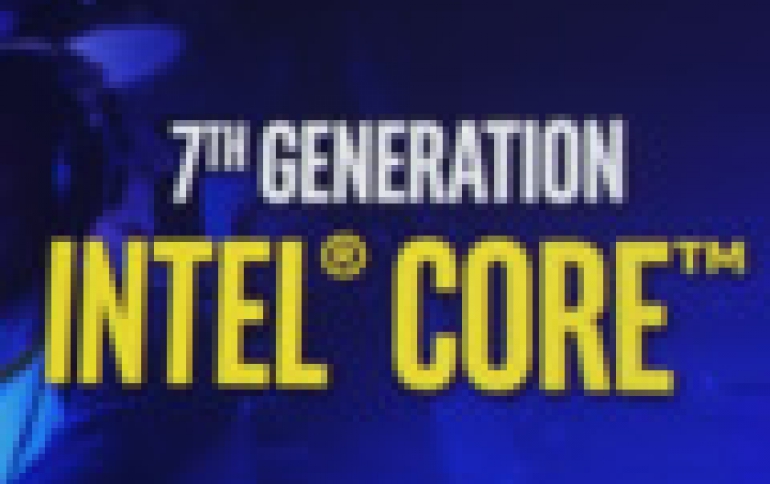
IDF: Intel Talks About Upcoming Kaby Lake Processors And Optane SSDs
Intel demonstrated at IDF many new devices based on the 4K-capable Kaby Lake processors, and also announced that its Optane SSDs will be soon available for testing over the cloud. On the stage, support for HEVC Main10 Profile was announced with 7th Generation Kaby Lake chips.The demo showed a new processor smoothly decoding a HEVC 10bit video.
While graphics will be smoother with Kaby Lake, you'll still need a separate graphics processor for virtual reality headsets and demanding games.
For gaming, Intel showed off Overwatch being run off of the 7th Gen IGP. That being said, it was not mentioned what the resolution or quality the game was running at, and V-Sync was not enabled.
Laptops based on Kaby Lake will ship this fall, Intel CEO Brian Krzanich said during the keynote. Asus has already announced Transformer 3, a 2-in-1 with Kaby Lake, and HP leaked the Kaby Lake Core i3-7100U chip in its upcoming Pavilion x360 m1 convertible PC. The chip has an HD Graphics 620 processor, which is capable of DirectX 12 gaming.
Lenovo and Acer are announcing Kaby Lake devices ahead of the IFA trade show in Berlin next month.
After Broadwell and Skylake, Kaby Lake is the third Core chip design based on the 14-nanometer process. The new chips will appear in devices thso fall.
Kaby Lake will be followed next year by the first 10-nm PC chips code-named Cannonlake.
Regarding the Optane SSDs, Intel isn't yet shipping them, but they soon will be available for testing over the cloud.
This is good news for enterprise users, who are eagerly awaiting the new class of storage and memory shown to break SSD speed records.
Optane is based on 3D Xpoint technology, which is 10 times faster than the technology in standard SSDs. It also can serve as a substitute to traditional DRAM, but software needs to be written so parts of Optane operate like memory tiers.
Optane SSDs will be available at the end of the year to enterprises and gamers. But the cloud-based Optane test bed will be accessible for free only to enterprise users looking to test applications tied to financial transactions, machine learning, autonomous driving, and other uses, Intel said.
Intel will ship Optane SSDs for laptops and 2-in-1s, as well as memory DIMMs based on 3D Xpoint, starting next year. The storage will be compatible with NVMe slots, which are used for SSDs today.
Intel and Micron jointly developed 3D Xpoint technology. SSDs based on 3D Xpoint technology from Micron will be available next year to enterprise customers through storage companies.
Intel provided a small demonstration of a PCI Express Optane SSD at IDF. The SSD was installed
on the X99 chipset motherboard and a Linux system.
Intel provided a comparison of the new SSD with the Intel SSD 750. And the result showed a 3.7x faster performance for the Optane.






















